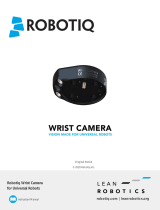
Summary of SPEL+ Commands
EPSON RC+ 7.0 (Ver.7.5) SPEL+ Language Reference Rev.8 11
ECPSet Defines or displays an external control point.
ECPDef Returns status of ECP definition.
ECPClr Clears an ECP definition.
Base Defines and displays the base coordinate system.
Local Define a local coordinate system.
LocalDef Returns status of local definition.
LocalClr Clears (undefines) a local coordinate system.
Elbow Sets / returns elbow orientation of a point.
Hand Sets / returns hand (arm) orientation of a point.
Wrist Sets / returns wrist orientation of a point.
J4Flag Sets / returns the J4Flag setting of a point.
J6Flag Sets / returns the J6Flag orientation of a point.
J1Flag Sets / returns the J1Flag setting of a point.
J2Flag Sets / returns the J2Flag orientation of a point.
J1Angle Returns the J1Angle attribute of a point.
J4Angle Returns the J4Angle attribute of a point.
VxCalib Creates the calibration data.
VxTrans Converts the pixel coordinates to the robot coordinates and
returns the converted the point data.
VxCalInfo Returns the calibration completion status / calibration data.
VxCalDelete Deletes the calibration data.
VxCalSave Saves the calibration data to the file.
VxCalLoad Loads the calibration data from the file.
Program Control Commands
Function Declare a function.
For...Next Executes one or more statements for a specific count.
GoSub Execute a subroutine.
Return Returns from a subroutine.
GoTo Branch unconditionally to a line number or label.
Call Call a user function.
If…Then...Else...EndIf Conditional statement execution.
Else Used with the If instruction to allow statements to be
executed when the condition used with the If instruction is
False. Else is an option for the If/Then instruction.
Select ... Send Executes one of several groups of statements, depending on
the value of an expression.
Do...Loop Do...Loop construct.
Declare Declares an external function in a dynamic link library (DLL).
Trap Specify a trap handler.
OnErr Defines an error handler.
Era Returns the robot joint number for last error.
Erf$ Returns the function name for last error.
























